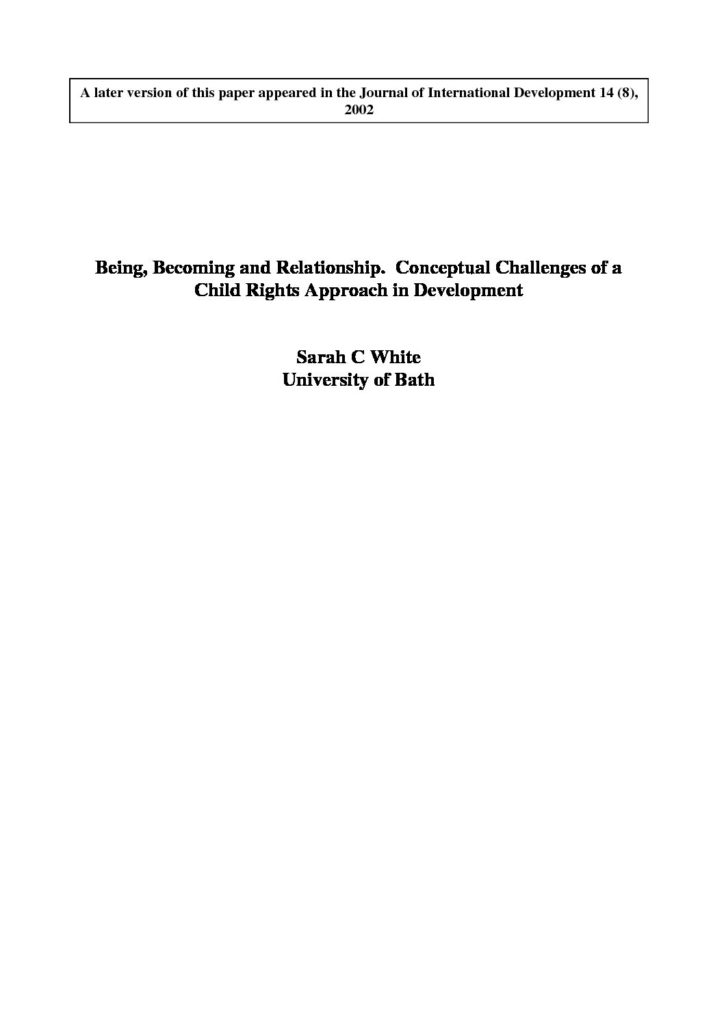
Being, Becoming and Relationship: Conceptual Challenges of a Child Rights Approach in Development
Summary
The United Nations Convention on the Rights of the Child (1989) brings together two main dynamics, both of which are critical to a child rights approach in development. Its first objective is to extend the fundamental human rights recognised for adults to children. Secondly, the Convention calls for recognition that children’s particular status engenders specific forms of vulnerability, interests and entitlements. The key issue here is recognition: that children should not simply be regarded as scale model adults, but taken on their own terms, as a set of development subjects requiring a distinctive and particular approach. This paper argues that making children central to development and social analysis requires a person-centred rather than category-centred approach, which recognises the fundamental importance of relationship to people’s actions, entitlements and well-being. It is argued that ‘Child-centred’ development practice must not be ‘child-only’: social and economic justice for poor children must be tackled in the context of their families and communities. Similarly, children do not live their lives in
Discussion
Users can discuss this report and make suggestions for future updates. You must be signed in to submit a comment.
No comments
Join the conversation and
Become a Member Existing member loginbecome a member.